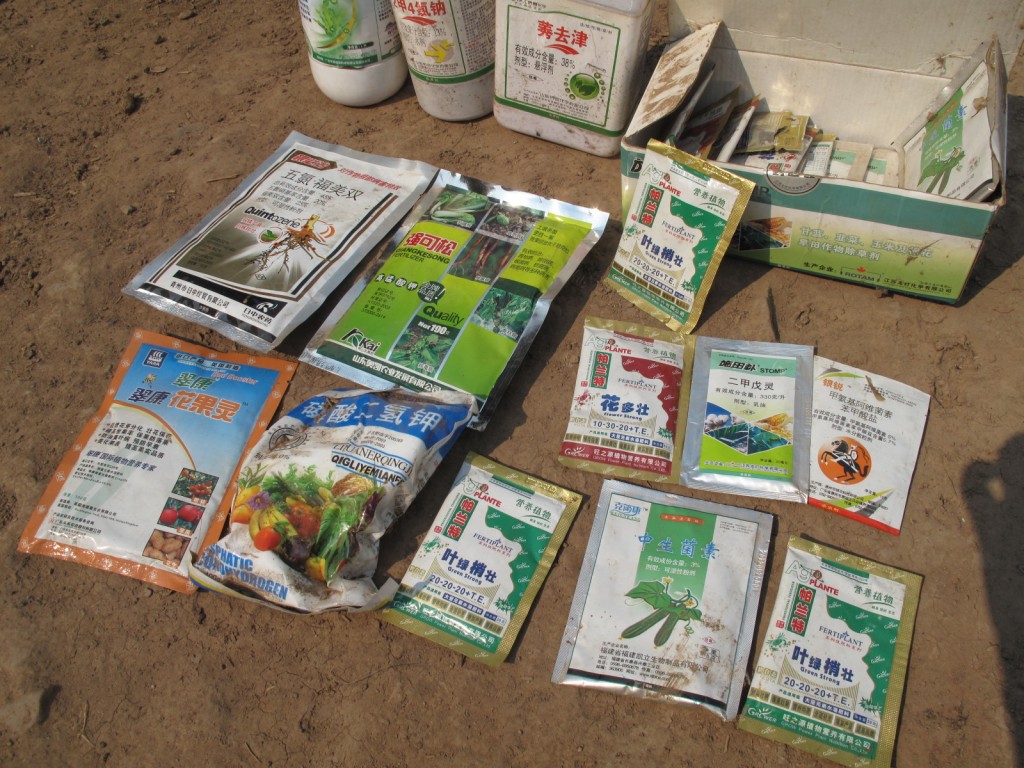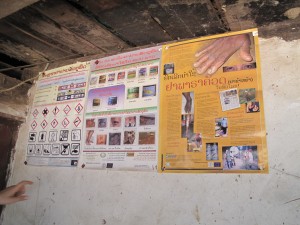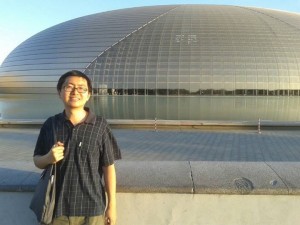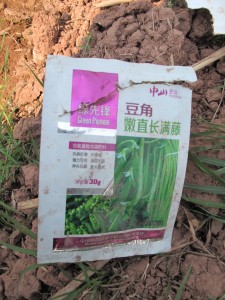Development Programmes, Other parts of Asia05 MAY 2014
How much do you know about this agrochemical?

Kevin Li
Kevin Li is the Manager – Grants Management and Review for the International Programme Unit. His work is to plan, coordinate and supervise the allocation and use of the funds of the unit according to the standards of the quality, monitoring, review and knowledge acquisition of poverty alleviation projects. In addition to his daily work, Kevin likes travelling and visiting historical and cultural heritages and natural scenery.

Small and medium enterprises and even individuals will hire farmers to grow the crops they need and in the process give them agrochemcials to use. These, for example, are used on string bean plantations.
In recent years, Oxfam has been concerned about the impact of foreign investment on small-scale farmers in developing countries. The use of agrochemicals is one of the major problems.
Kevin Li
Programme Officer – International Program Unit
Usually when we hear the word “agrochemical”, we think about problems with food safety, which consumers like us always want to avoid. However, farmers can by no means avoid using them. How many hazards are brought by them, and how can we eliminate them?
Recently we took a trip to Laos, a small country situated between Mainland China’s Yunnan Province, Thailand and Vietnam, and found that many of the small-scale farmers do not understand the Chinese labels on the chemicals. They have no idea what the Chinese words mean. We also heard of cases where the chemicals were overused, which killed off plantations. It is believe that there are other cases of chemical overuse which damage the environment and hurt farmers.

A poster, which was produced by international NGOs locally, teaches farmers how to avoid the hazards of agrochemicals.
Indeed, there are many foreign investors in Laos, including those from Vietnam, Thailand and China. They come with intergovernmental agreements, for example China’s opium substitution scheme – where farmers receive subsidies to switch from planting opium to other crops – or contracts signed with the heads of villages. The investors, many of which are small and medium enterprises or even individuals, bring along with them seeds, agrochemicals and sometimes provide training, while the small farmers offer their land for growing the crops and commit labour and water to the task. The investors will buy the produce according to the time and price they stipulate on their contracts. Meanwhile, some bigger investors will acquire land concessions from the Lao government, and hire labour locally or from their home countries.
We got a chance to discuss with local officials the problems of agrochemicals. They also admit that the problems are quite common, but they lack the manpower to monitor their use.
Besides increasing their monitoring of agrochemicals imported from their home countries, the investors also have the responsibility to teach farmers how to safely use them under Lao law. By doing so, they will protect both the producers and consumers, and the environment. In long run, we should encourage organic farming, and reduce the use of agrochemicals.
In recent years, Oxfam has been concerned about the impact of foreign investment on small-scale farmers in developing countries. The use of agrochemicals is one of the major problems. We will deliver our recommendations to the governments of both the investors’ home and host countries after conducting evidence-based research, to lobby them to protect the small-scale farmers’ welfare long term and enhance their capacity to protect themselves.
 Kevin works on promoting responsible foreign agriculture investment and legislation which protects and improves the livelihoods of small-scale farmers. He is familiar with development issues in the Mekong region. He believes that communities can benefit by guiding and regulating the foreign investments. Besides his daily work, Kevin likes travelling to historical sites and being in nature.
Kevin works on promoting responsible foreign agriculture investment and legislation which protects and improves the livelihoods of small-scale farmers. He is familiar with development issues in the Mekong region. He believes that communities can benefit by guiding and regulating the foreign investments. Besides his daily work, Kevin likes travelling to historical sites and being in nature.

